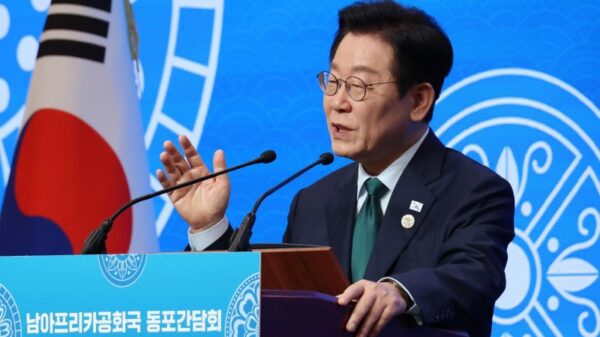During a joint news conference in Aylesbury, England, British Prime Minister Keir Starmer and U.S. President Donald Trump expressed their differing views on the prospect of a Palestinian state. This discussion followed a recent vote in the United Nations General Assembly, where 142 countries supported a two-state solution to the Israel-Palestinian conflict. The resolution urged Israel to recognize Palestinian statehood, an initiative that Israeli Prime Minister Benjamin Netanyahu staunchly opposed. The United States, however, voted against the nonbinding resolution.
The leaders’ comments came at the end of a state visit by Trump, which was marked by ceremonial displays intended to emphasize the strong ties between the United Kingdom and the United States. Starmer noted that he and Trump had delved into the complexities of Palestinian statehood during their private discussions.
U.N. Resolution and Its Implications
The recent UN vote represents a significant international consensus on the need for a two-state solution, a stance that many observers believe could catalyze future negotiations. During the news conference, Trump acknowledged the disagreement with Starmer, stating, “I have a disagreement with the prime minister on that score.” This statement highlights the contrasting approaches of the two leaders on Middle Eastern policy.
While Starmer is expected to announce the recognition of a Palestinian state in the coming days, he affirmed that this decision is not influenced by the timing of Trump’s visit. This upcoming recognition could reshape diplomatic relations and is anticipated to be a major topic at the forthcoming UN General Assembly, where world leaders will gather to discuss pressing global issues.
Domestic and International Policy Discussions
In addition to discussions about the Middle East, the news conference also touched on a range of other topics, including trade and technology investments. Trump and Starmer emphasized their commitment to enhancing cooperation between their countries, particularly in science and technology sectors. Starmer described their partnership as a “historic agreement” set to drive job creation and innovation.
As Trump’s visit concluded, he expressed gratitude for the warm reception he received, stating, “The bond between our countries is like no other anywhere in the world.” This sentiment underscores the enduring relationship shaped by shared values and mutual interests.
The two leaders also addressed concerns about free speech in their respective countries. Starmer defended the UK’s regulations aimed at curbing harmful online content while asserting his commitment to protecting free speech. Trump, on the other hand, criticized the UK’s approach, suggesting it limits expression.
Overall, the discussions between Trump and Starmer reflect broader geopolitical dynamics, particularly regarding the Israel-Palestine conflict and the future of international cooperation. As the leaders parted ways, the implications of their dialogues will likely reverberate through both national and international policy frameworks in the months to come.








































































